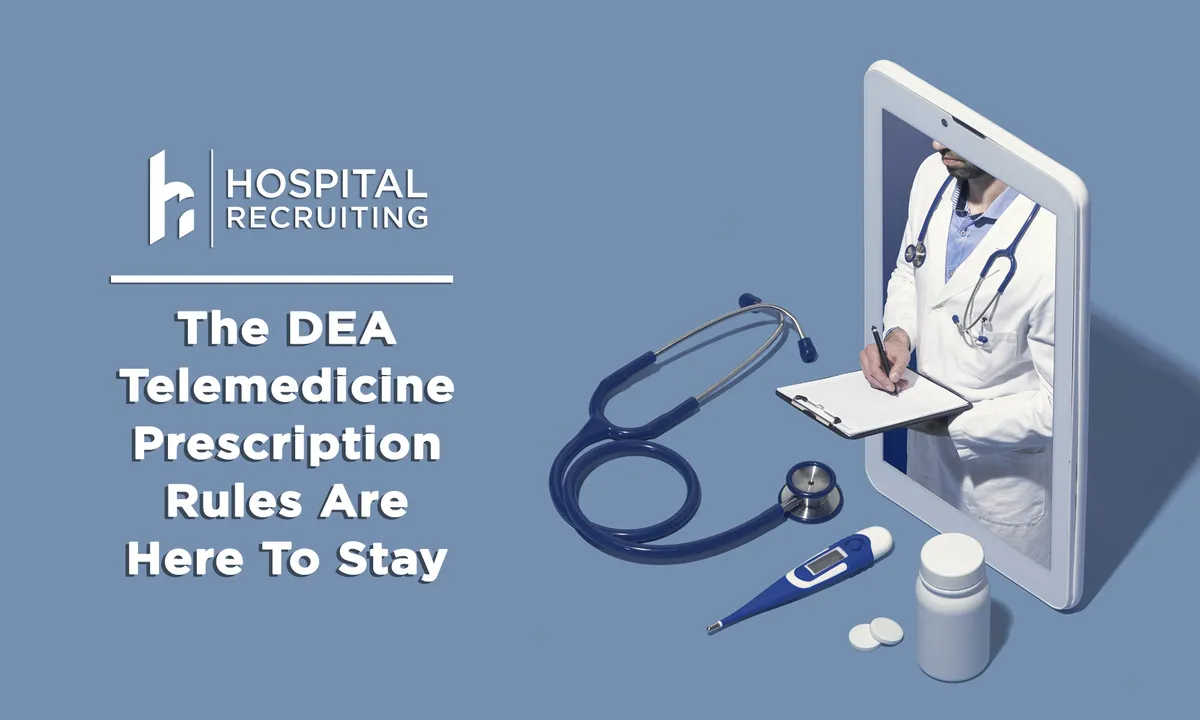The DEA Telemed Prescription Rules Are Here To Stay

Review
The Drug Enforcement Administration (DEA) announced rules that allowed physicians to prescribe controlled substances via telemedicine. They took effect on October 6, 2020, and intended to expand access to controlled substances for patients who were unable to obtain them in person due to the COVID-19 pandemic. They will formally end May 11, 2023.
What unfolded in the following year caused quite a stir, with entrepreneurs pouncing on the opportunity.
Under the new rules, physicians could prescribe controlled substances to patients via telemedicine without requiring an in-person exam, even allowing prescribing by out-of-state physicians. This is a significant change from the previous rules, which required an in-person examination before a physician could prescribe a controlled substance. The new rules also allowed for the use of audio-only communication for the prescribing of controlled substances, in addition to video communication.
The new rules still required that physicians use “appropriate safeguards” when prescribing controlled substances via telemedicine. These safeguards include verifying the identity of the patient, obtaining informed consent from the patient, and conducting a comprehensive medical history.
Laws that are here to stay
Physicians will be able to prescribe the following:
- a 30-day supply of Schedule III-V non-narcotic controlled medications like ketamine.
- a 30-day supply of buprenorphine for the treatment of opioid use disorder, but a refill will require an in-person visit.
- A 30-day supply of substances like codeine, benzodiazepines, and sedative-hypnotics like Ambien. Refills will require an in-person visit.
Permission that is going away
- Prescribing any schedule II drugs without an in-person evaluation.

Pros & Cons
Patients in rural areas will have continued access to life-saving treatments for substance abuse disorders, namely opioids. This addressed the shortage of doctors in some rural areas, and helped those without transportation or a driver’s license.
However, some companies took this to the extreme, in the true spirit of American capitalism. NPR chimed in, reminding the country of how regulatory oversight in the 1990s allowed opioid pill mills to flourish, resulting in our current narcotic epidemic. It’s extremely difficult for policymakers to find a balance.
Stimulants
The online counseling companies Cerebral and Done Health (now just called Done First or Done) pushed their providers to prescribe ADHD stimulants to all patients to increase their retention and subscription rates. The DEA investigated both of them, and CVS went so far as to completely block their prescriptions. Even Instagram removed their ads.
Cerebral had to stop prescribing Adderall to new patients starting in May of 2022. Unfortunately, this happened after Cerebral gaslighted and fired their former Vice President who spoke out against the unethical prescribing practices.
Ketamine
The Washington Post and New York Times have posted several articles outlining the dangers and permanent complications of those taking hallucinogens. One physician has gone so far as to get licensed in every state and prescribes ketamine to roughly 3,000 patients online.
Many patients anonymously admitted to reporters that they take much more than the recommended dose, which is 200mg, by doubling up on doses, and taking as much as 800mg+ a day.
Numerous patients have reported addiction and permanent bladder damage from overdosing on ketamine. It’s unclear how many have truly developed an addiction because patients refrain from disclosing this to their online provider. After Cerebral received a grand jury subpoena, attorneys counseled providers of ketamine to be wary of DEA investigations.
The DEA Wants to Hear From You
The DEA wants feedback from medical professionals before drafting its final regulations. They have opened commentary for 30 days that will end March 31, 2023.
Submit your feedback here.
Related Posts
